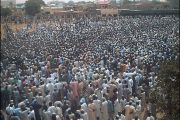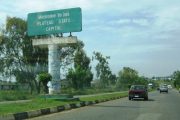August 5th, 2019 has come and gone in Nigeria without an outpouring anywhere comparable to Tahrir Square in Cairo, Egypt in 2011. But, why might that have been the case? Intervention has already made reference to how the question in several quarters was always that of who was doing this revolution if the Nigeria Labour Congress, (NLC) is not there; the closest to a radical political party – the People’s Redemption Party, (PRP) is not there and many others that should normally have been at the forefront were not there?
Of course, there are both deeply genuine disaffection as well as organised disaffection across the country in reaction to serial fumbling, these are themselves not conditions for a revolution without the agency factor to mould them into something for everyone.
Could the the revolutionaries have been working on bandwagoning? Bandwagoning, in this case, is the assumption that unhappy people will pour into the streets against an unpopular government. But, unhappy people do not automatically frame their unhappiness in homogeneous terms. Some would frame it in terms of where they live. For such people, change of location is what is more important. For some others, unhappiness comes from the ‘bad’ guys around, whatever makes them bad. So, they will be more interested in wars against ‘bad’ guys. This is not to talk of larger identity forms which moves human beings into collective action. Hence the necessity for a powerful narrative that brings everyone to a singular imagining of reality or a relatively same jump-off point – humanism, nationalism, class and the likes.
Apparently in search of such mental viewfinder, the ‘revolutionaries’ took to the word revolution. That brought in the irony. The word ‘revolution’ alarmed the Nigerian establishment no end, at least the governmental part of it. They unscrambled the security machine as any other establishment would do anywhere else.
But the agency was missing, a battle cry that could reverberate across Nigeria because it summarises popular discontent wasn’t there. The revolution had a signifier that did not embody the sort of appeal that people would want to poor out and/or die for. Unless if the day after magically turns tumultuous, this revolution might have been a jinxed affair already, leaving the battle for Omoyele Sowore’s freedom as the main task.
But the irony there may not be dismissed. If a nameless uprising in 2012 graduated into a ‘Revolution’ in 2019, nobody can be sure that a trend is not emerging.




























